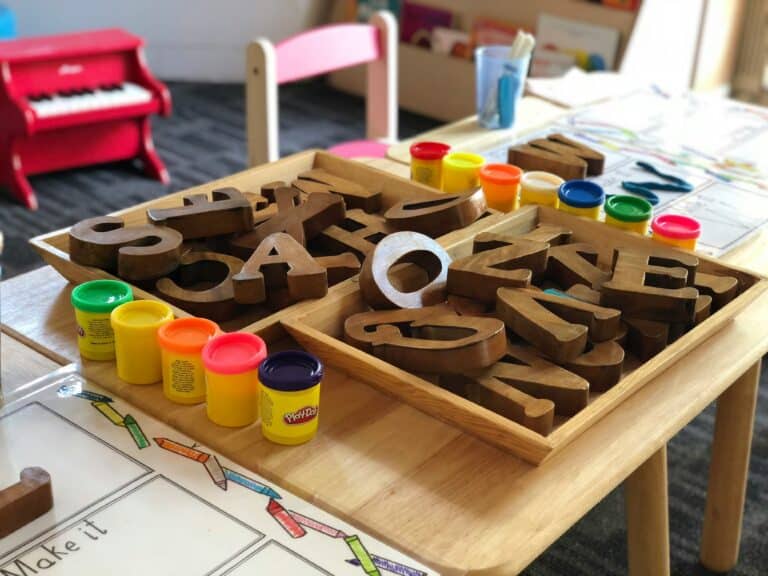Including Family Child Care (FCC) in Pre-K
Home Grown is excited to invest in meaningful policy and practice tools that pave the way for more inclusion of FCC in pre-K. While each partner brings different perspectives and engages different audiences, they each offer important contributions to support the many system leaders who will be necessary to make bold change to achieve an inclusive and equitable system that includes FCC. Each team, though working on separate projects, collaborates with Home Grown to reflect these guiding principles and center provider voice and input from the field in their work.
Home Grown believes that family child care providers who provide pre-K education are vital contributors to the educational system, especially in under-served communities, and that more providers should have the opportunity to access public pre-K funding to further nurture and teach the children in their care.
We also invite you to read our blog post: Hidden Treasures: Celebrating and Supporting Family Child Care in Pre-K Systems.

Making the Case for Integrating Home-based Child Care Into Public Preschool
These briefs, authored by One for All Strategies in collaboration with ECE on the Move, are designed to support leaders and administrators of pre-K systems and other early care and education programs in their plans to incorporate home-based child care into publicly funded systems. We hope these briefs will help leaders and administrators make the case for including family child care in public pre-K to their stakeholders and ensure equitable funding and support for home-based child care is considered while utilizing best practices for incorporating provider voice in the planning and policy-making processes.
Introduction
An overview of why we developed these briefs and how advocates and providers can use an "inside-outside" strategy to ensure HBCC inclusion in pre-K systems.
The Role of Unions
Could unions be a lever to better represent HBCC provider interests and support their right to collectively advocate? This brief explores the role of unions.
The NYC Story
In 2014, New York City failed to include HBCC providers during its initial scale-up of universal pre-K services. This brief covers the lessons learned for the field.
Nuts-and-Bolts Tactics
Here are some examples of successful tactics the supported collaboration between HBCC providers and pre-K administrators across the country.

Paying for Pre-K Delivery in FCC Settings
Including family child care (FCC) in public preschool programs in a way that supports quality learning environments requires adequate funding. This cost study shares research and data that determine what that base cost would be, how FCC educators should be funded along with direct programmatic and administrative cost analysis.

Family Child Care Provider Perspectives on Pre-K
This brief summarizes major themes with data highlights from the PKFCC educator survey. The full technical report contains additional data, as well some highlights of the benefits and challenges the FCC providers experienced.
Equitable Framework for including FCC in Pre-K
The Erikson Institute, University of Delaware and Equity Research Action Coalition created the Pre-K in Family Child Care Project (PKFCC) to examine strategies for implementation of public pre-kindergarten (pre-K) in family child care (FCC) settings across states and localities in the U.S. These documents represent the culmination of the Pre-K in FCC project. These and all of the PKFCC products will remain available on the project website.
The PKFCC project uses a rapid response approach designed to both disseminate study findings about implementation strategies and facilitate cross-state learning and sharing about successes and challenges of implementing pre-K in FCC.
Long-term goals for the study include increasing the numbers of states and localities that include FCC as part of their mixed delivery child care systems and current/future pre-K implementation plans. Expansion of pre-K to meaningfully include FCC is a promising strategy for supporting the FCC workforce and for increasing access to and stability of high-quality early care and education for families and children.
The resources below share guidelines and conceptual framework on the inclusion of FCC in pre-K systems.
- Document Review:Public Pre-K Guidelines for Family Child Care: A Document Review
- Conceptual Framework: A Transformative Vision for the Authentic Inclusion of Family Child Care in Mixed-Delivery Pre-K Systems
- Slide Deck: A Transformative Vision for the Authentic Inclusion
of Family Child Care in Mixed-Delivery PreK Systems - Webinar Recording: Advancing Equity in Pre-K Systems with Family Child Care Providers and Families
Building the Framework for including FCC in Pre-K
The Pre-K in Family Child Care Project (PKFCC) developed these resources to help guide the implementation work of including family child care in pre-K settings. These include strategies toward equitable implementation, conceptual frameworks, compensation approaches, and more.
- Report: Including Family Child Care (FCC) Programs in Publicly-Funded Pre-K: Conditions for Success (NIEER)
- Brief: Qualifications and Compensation (PKFCC)
- Brief: Curriculum, Assessment, Screening, and Monitoring (PKFCC)
- Brief: Infrastructure and Support (PKFCC)
- Brief: Pre-K Funding Procurement, Child Enrollment, and Data Tracking (PKFCC)
- Case Study: Case Studies of Three Public Pre-K System Approach (PKFCC)
Getting Started
The EPIC FCC initiative seeks to support state, city, county and tribal government leaders in expanding the participation of family child care (FCC) educators in their pre-K systems or engaging FCC educators in these pre-K systems for the first time. Home Grown is committed to ensuring that home-based child care providers can fully participate in well-resourced early childhood initiatives, including pre-K. To do this, we recognize that systems need to look and behave differently to appropriately include home-based child care providers and the families they serve.
- Action Plan (Use on your Own)
- EPIC Cohort
Interested in future support from Home Grown? Fill out the short interest form below and we will be in touch.
Additional Resources
- Home Grown: The Case for Home-Based: Why States Should Consider Inclusion of Family Child Care Homes in Mixed Delivery Pre-K Systems
- Erikson Institute: Pre-K in Family Child Care Project (PKFCC)
- NIEER: Including Family Child Care in Statefunded Pre-K Systems: An Update ( April 2024)
- NIEER: Including Family Child Care in Pre-K Systems: An Update at the Local Level (Sept. 2024)